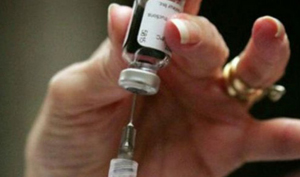 Washington, Oct 25: Scientists have found that bioinformatically optimised HIV vaccine antigens may help design a global HIV vaccine.
Washington, Oct 25: Scientists have found that bioinformatically optimised HIV vaccine antigens may help design a global HIV vaccine.
A scientific team led by Beth Israel Deaconess Medical Center (BIDMC) conducted the study in monkeys.
"A global HIV vaccine would offer major biomedical and practical advantages over most other HIV vaccine candidates, which are limited to certain regions of the world," said lead author Dan H Barouch, Professor of Medicine at Harvard Medical School.
"To our knowledge, this study represents the first evaluation of the protective efficacy of a candidate global HIV antigen strategy in nonhuman primates," said Barouch.
Researchers demonstrated for the first time that mosaic HIV vaccine antigens can afford partial protection in rhesus monkeys against challenges with a stringent simian-human immunodeficiency virus.
These mosaic vaccine antigens have been developed for optimal immunologic coverage of global HIV diversity.
Barouch and his team studied the immunogenicity of HIV mosaic Env/Gag/Pol antigens administered to monkeys using viral vectors. Env, Gag, and Pol are three major HIV proteins.
After immunisation, the monkeys were repetitively exposed to multiple simian-human immunodeficiency virus challenges and the investigators evaluated the ability of the vaccines to block infection.
Although most animals immunised with the mosaic HIV vaccine became infected by the end of the study, the researchers observed an 87 to 90 per cent reduction in monkeys' probability of becoming infected each time they were exposed to the virus.
In contrast, monkeys that received sham vaccines became infected more quickly.
"These findings indicate that these optimised vaccine antigens can afford partial protection in a stringent animal model," said Barouch.
The investigators found that the immunised monkeys mounted antibody responses against diverse strains of HIV noting, "protection was dependent on several different types of antibody responses, suggesting that the coordinated activity of multiple antibody functions may contribute to protection against difficult-to-neutralise viruses."
The monkeys also mounted cellular immune responses to multiple regions of the virus.
"These data suggest a path forward for the development of a global HIV vaccine and give us hope that such a vaccine might indeed be possible," said Barouch.
"We are planning to advance this HIV vaccine candidate into clinical trials next year," he added. The study was published in the journal Cell.





Comments
Add new comment